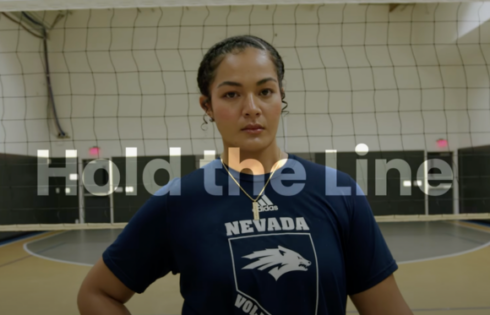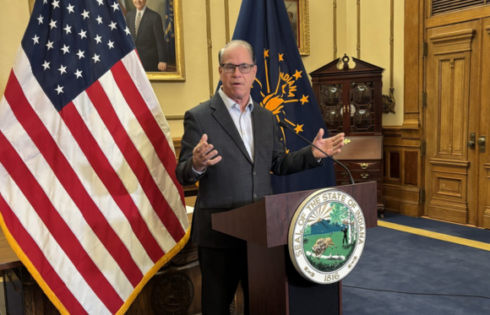
‘If only my rights as a female athlete had been more important than a man’s feelings’
College student Payton McNabb has become a leading voice for women’s sports after sustaining a traumatic brain injury from a volleyball spike by a biological male transgender athlete.
In “Kill Shot: How Payton McNabb Turned Tragedy Into Triumph,” a new mini-documentary from the Independent Women’s Forum, the young woman (pictured) and her family talk about the struggles they have faced since she sustained permanent injuries in the 2022 game.
“It was 100% avoidable, if only my rights as a female athlete had been more important than a man’s feelings,” she told the New York Post in a recent interview.
The McNabbs knew about the biological male player on the opposing girls volleyball team, but they did not know what to do about it.
The New York Post reports about what happened during the game:
The match was relatively uneventful until [the male] player spiked the ball directly into McNabb’s head, knocking her unconscious for 30 seconds and sending the whole gym into a shocked silence.
Everyone else — including the trans player — ultimately finished the game, while McNabb was rushed off the court with a concussion, neck injury and two black eyes. […]
The full extent of her injury unfolded over weeks, as McNabb was diagnosed with a traumatic brain injury, a brain bleed, partial paralysis and loss of peripheral vision on her right side. She also suffered ongoing memory loss, confusion and severe headaches.
McNabb, now 19, said the transgender player never apologized to her.
However, she said in the documentary that she did receive a text from him after her story began to draw publicity. It read: “Wow I really am living rent free in your head, aren’t I?”
Now a sophomore at Western Carolina University, McNabb said her injuries from the game resulted in lost opportunities to play college softball. She said she also needs help academically, because her memory retention is not what it used to be.
In the documentary, McNabb’s parents, Daniel and Pamela, said they have noticed a change in their daughter, too.
“The child that we raised for 17 years, the child that we knew … is gone,” Pamela said, crying.
“I would never, ever let her play today if I knew what I know now,” she said. “Pull your kid. Don’t play. It is not worth what has happened to her to happen to anybody else’s child.”
Her parents said they are proud of their daughter for fighting to overcome her injuries and speaking up for other female athletes.
In 2023, McNabb testified in front of the North Carolina legislature, sharing her story as lawmakers considered a bill to ban male athletes from women’s sports. The legislation eventually passed.
She also advocates for women’s sports as an ambassador for the Independent Women’s Forum.
To McNabb, having separate sports for males and females is just “common sense.”
“It’s not about me. I’m in this for women and girls,” she said.
As to the new documentary about her life, McNabb told The Post she hopes that by telling her story other girls will be protected.
“If my story can in any way help prevent this from happening to at least just one woman or girl, then it was all worth it,” she said.
MORE: SJSU trans volleyball player’s career ends—so should male participation in women’s sports
IMAGE: Independent Women’s Forum/YouTube
Like The College Fix on Facebook / Follow us on Twitter







Please join the conversation about our stories on Facebook, Twitter, Instagram, Reddit, MeWe, Rumble, Gab, Minds and Gettr.